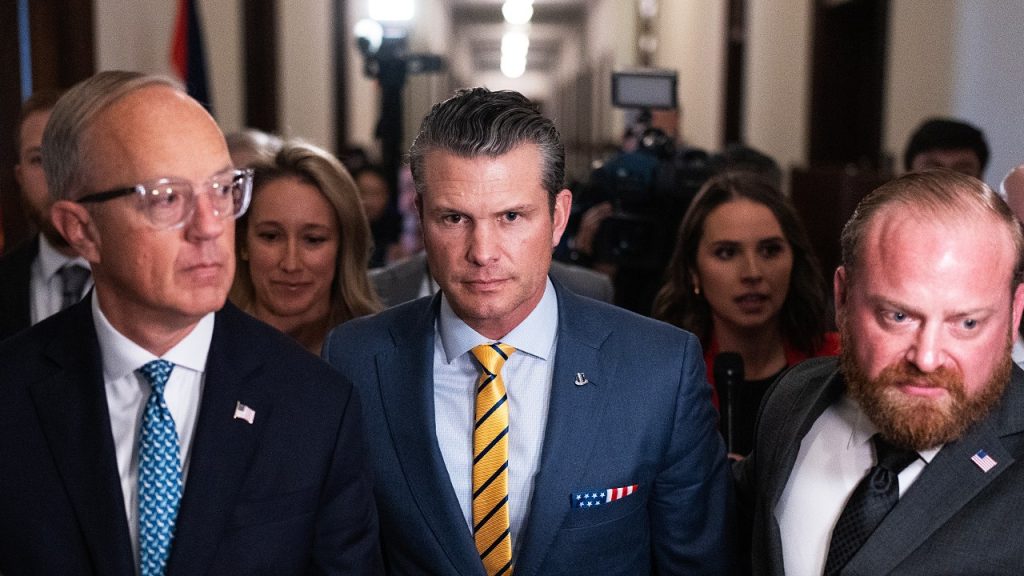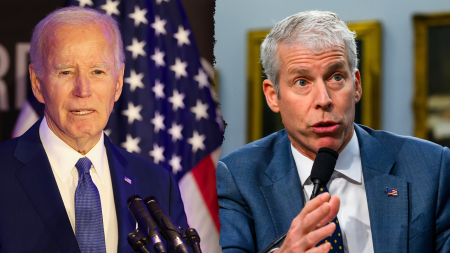Pete Hegseth’s nomination for Secretary of Defense under President-elect Trump appears to be gaining traction within the Republican Senate, despite facing a series of serious allegations. These accusations encompass sexual assault, excessive alcohol consumption, and financial mismanagement, all of which Hegseth has vehemently denied. The current sentiment among GOP senators suggests a growing acceptance of his nomination, a stark contrast to the swift withdrawal of Trump’s previous Attorney General pick, Matt Gaetz, who faced significant opposition. While some Republicans may still harbor reservations, the absence of outright opposition from key figures like Senators Collins and Murkowski, coupled with increasing vocal support from others like Senator Ernst, signals a potential path to confirmation.
Hegseth’s confirmation process hinges on securing the support of a majority in the Senate. With Republicans holding a slim 53-47 majority, he can afford to lose only a handful of GOP votes, assuming no Democratic support. The initial reactions from Republican senators indicate a cautious but increasingly positive trajectory. The apparent shift in sentiment toward Hegseth highlights the importance of navigating the confirmation process effectively. His meetings with key senators, including Collins, Murkowski, and Ernst, appear to have played a crucial role in allaying concerns and building support. The focus on substantive discussions about defense policy and military matters, rather than dwelling solely on the allegations, has likely contributed to this positive momentum.
Senators Collins and Murkowski, known for their moderate stances, represent critical votes for Hegseth’s confirmation. Collins’ account of a “good substantive discussion” covering a broad range of defense-related topics suggests that Hegseth has successfully engaged with her concerns. Murkowski’s refusal to comment on her meeting with Hegseth, while not indicative of outright support, also does not signal opposition. These interactions underscore Hegseth’s strategic approach to the confirmation process, aiming to secure the support of influential senators across the Republican spectrum.
Senator Joni Ernst’s evolving position on Hegseth’s nomination further illustrates the shifting dynamics within the Republican caucus. Initially expressing reservations, Ernst has since issued a statement of support, emphasizing the importance of a fair hearing based on facts rather than anonymous sources. As a female combat veteran, a member of the Armed Services Committee, and a survivor of sexual assault, Ernst’s endorsement carries significant weight, particularly given the allegations against Hegseth. Her support could influence other senators who may have been initially hesitant.
The comparison between Hegseth’s current standing and the fate of Matt Gaetz, Trump’s previous pick for Attorney General, highlights the significance of building and maintaining support within the Senate. Gaetz’s rapid withdrawal from consideration, due to overwhelming opposition from both Republicans and Democrats, underscores the precarious nature of the confirmation process. Hegseth appears to have learned from Gaetz’s experience, proactively engaging with senators and addressing their concerns, thereby solidifying his position.
The growing confidence among some Republican senators regarding Hegseth’s confirmation prospects underscores the effectiveness of his approach. Senator Mullin’s observation of a palpable shift in sentiment, from last week to this week, suggests that Hegseth’s efforts to build relationships and address concerns have resonated with his colleagues. While challenges remain, and the confirmation process is far from complete, the current trajectory indicates that Hegseth has a reasonable chance of securing the necessary votes to become the next Secretary of Defense. This would mark a significant victory for the Trump administration and potentially reshape the direction of U.S. defense policy.










